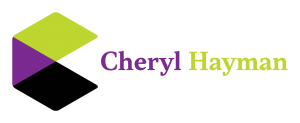Board chairs today are dealing with issues that are unprecedented, both in terms of how divergent they are, as well as the rapid pace at which they are moving.
From diversity to geopolitical issues, climate change and the pandemic that, more than two years in, continues to impact daily operations for most businesses. As we do away with lockdowns we are left with significant challenges, including supply chain issues, increasing costs, operational impacts and inflation, to name a few.
A recent Deloitte report analysed the rapidly evolving role of the chair. The report’s authors interviewed board chairs across 16 countries. It is an expansive view of the pressures and opportunities facing chairs — and the boards that support them — globally. The following paragraph articulates why this topic is gaining in criticality. Of course, there is no denying the chair’s role has always been crucial and a great chair makes an enormous difference to a company’s performance:
“Chairs today play a critical role in the success or failure of their organisations; they serve as a trusted sounding board and guiding hand for the CEO and other board members. Huge forces are redefining the role in real-time: unforeseen events, such as the pandemic and geopolitical disruption, adding to the inexorable challenges of digital transformation, climate change, heightened regulation, and investor scrutiny.”
After reading this report, and reflecting on the issues and opportunities currently facing the companies where I’m a non-executive director, the questions rolling around my head were: how do we as directors, best support — and add value and experience to aid our chair? And what do we do when we witness a chair who is not well poised for the future or even our current challenges?
Deloitte’s report hits the mark with the issues it identifies as critical for chairs to be across to expertly guide their organisations today.
This Harvard Law article adds issues such as corporate purpose, shareholder activism and workforce issues to an already substantial list of critical aspects of director and board oversight, all of which are led by insightful and contemporary chair oversight and practices.
In the end, however, some chairs and directors are better placed than others to guide their organisations through these challenges. So, how can we ensure that our chairs and organisations are on the right side of this delicate scenario? The decisions that chairs, boards and companies make now and in the next couple of years will guide their performance and their survival.
How chairs step up to this challenge
Despite the breadth and pace of the challenges chairs face today, one thing remains the same: a critical capacity of an excellent chair is to ask the right questions.
Everything from considering the impacts of ESG and sustainability, the impact of long-term strategic decisions, the risks associated with implementing technology change now, the costs and the investment balance need to be queried.
Chairs and directors needn’t have all the answers but they need to know enough to ask the questions and enough to understand the brevity and importance of the issues and the exciting outcomes which may be delivered if done well.
Another expectation of chairs is to get comfortable — or more comfortable — with risk. This Gartner report found that in 2022, 57 percent of chairs were increasing their risk appetite. With change comes risk and in this current “adapt or die” environment, the risk is simply part of doing business.
Director support
So how can directors provide critical support to chairs and their organisations in this environment?
It is incumbent upon all directors to have a thirst for knowledge and an appetite for personal growth. The conversation around the diversity of boards is peppered with reasons.
One of which is diverse thinking and curiosity brought by a varied mix of skills and backgrounds adds to, and ensures, that different questions are raised and varied opinions and a robust discussion occurs. All of which drive well-considered decisions and mutual accountability.
Directors and chairs must ensure they stay upskilled in today’s issues, locally and also globally. The world has gotten smaller and smaller, technology has opened the door to so much change and opportunity and continually upskilling are crucial.
As a remuneration and nomination chair, I push hard for a learning framework to be part of the board calendar for group learning. This requires the chair’s endorsement.
In addition, we should all take personal responsibility for our knowledge growth, not all of which needs to have a direct or linear line to the specific role you’re undertaking, but which may open your mind to new and different ways of thinking.
When the wrong captain is steering the ship
I’m sure you’ve often heard these phrases: “Yes, I understand that’s a challenge today but it won’t affect us” or “We are different, that’s not something we need to be concerned with”.
With this in mind, it’s evident that some companies don’t have the right captain in place. Many companies, large and small, are struggling to keep up. They are driven by chairs and directors who do not see the need to embrace the critical challenges and changes that will ultimately decide the fate of the company’s financial and social sustainability.
In the end, the onus is on every director to feel comfortable speaking up, using facts and examples to illustrate the point. Other company case studies, successes and failures can help drive home a point about needing to remain on top of issues, and ahead of their impacts wherever possible.
Short of taking “boardroom activism” against a chair, which is not an ideal scenario, rational and well-thought-through debate and questioning can often drive the required change in attitude.
Failing that, more radical actions may be needed, but it is likely the shareholders will bring activism themselves if the board doesn’t work hard or fast enough to bring change and the chair is usually the one held most accountable.
An expert, rigorous and dedicated chair will steer their organisation through this period to flourish throughout and beyond these challenges. My focus as a non-executive director is how I can best utilise my expertise and keep current on topics that enable me to provide purposeful support to my chairs.
Cheryl Hayman is an independent non-executive director on listed boards Ai Media, Beston Global Foods and HNG Ltd as well as unlisted CAANZ.

